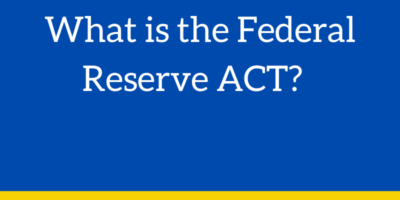What is FINRA?

What is FINRA (Financial Industry Regulatory Authority)? FINRA is a self-regulatory organization in the United States that oversees brokerage firms and registered representatives. Its primary responsibilities include enforcing rules and regulations related to securities transactions, as well as examining and disciplining firms and individuals that violate those rules. FINRA also provides education and training to industry professionals and maintains a database of information on firms and individuals in the securities industry.
What is FINRA’s History?
FINRA was established in 2007 as a result of the merger of the National Association of Securities Dealers (NASD) and the member regulation, enforcement, and arbitration functions of the New York Stock Exchange (NYSE). The merger was part of a broader regulatory reform effort in the wake of the financial crisis of the early 2000s and was intended to strengthen oversight of the securities industry and improve investor protection.
The NASD had been established in 1939 as a self-regulatory organization for the brokerage industry and had been responsible for enforcing rules and regulations, as well as disciplining firms and individuals for violations. The NYSE, meanwhile, had been responsible for regulating its member firms and enforcing rules related to trading on the exchange.
After the merger, FINRA took on the responsibilities of both organizations and became the primary self-regulatory organization for the securities industry in the United States. The organization has continued to evolve since its inception and has taken on new responsibilities in areas such as cyber security, high-frequency trading, and market integrity.
Are Hedge Funds Regulated By FINRA?
Hedge funds are typically not directly regulated by FINRA, as they are not considered broker-dealers. However, FINRA does have some oversight over hedge funds in certain circumstances, such as when a hedge fund is marketed to the public or when a broker-dealer is involved in the sale of hedge fund interests. In these cases, FINRA may review the hedge fund’s offering documents and advertising materials to ensure that they are accurate and not misleading. Additionally, hedge funds that are marketed to the public may be subject to FINRA’s suitability rules, which require that the hedge fund’s investment strategy and risks are suitable for the investor.
Also, hedge fund managers that are registered representatives of a broker-dealer, or that have a place of business at a broker-dealer, are subject to FINRA’s rules and regulations, including its Anti-Money Laundering (AML) and Customer Protection rules.
FINRA’s oversight of hedge funds is limited, but it does have some regulatory authority over certain aspects of hedge funds, such as marketing and disclosure, and when broker-dealers are involved in the sale of hedge fund interests.
What Does FINRA Regulate?
Some of the main areas that FINRA regulates include:
- Sales practices: FINRA enforces rules and regulations related to the sale of securities, including rules that prohibit fraud and manipulation, as well as rules related to suitability and disclosure.
- Supervision: FINRA oversees firms to ensure that they have adequate policies and procedures in place to detect and prevent securities violations.
- Arbitration and mediation: FINRA provides dispute resolution services to investors and firms through arbitration and mediation.
- Licensing and registration: FINRA oversees the registration and licensing of firms and individuals in the securities industry, and maintains a database of information on firms and individuals.
- Market surveillance: FINRA monitors trading activity in the securities markets to detect and investigate potential violations of securities laws and regulations.
- Investor education: FINRA provides investor education and outreach programs to help investors make informed decisions about their investments.
Overall, FINRA’s goal is to protect investors from fraud and other securities violations and to promote the integrity of the securities markets.
What is FINRA’s Brokercheck Program?
FINRA’s BrokerCheck is a public disclosure program that provides information about the professional background, qualifications, and conduct of current and former FINRA-registered brokers, as well as brokerage firms. The program is intended to help investors make informed decisions about whether to do business with a particular broker or firm.
The BrokerCheck program is operated by FINRA and is available to the public through the FINRA website. When an individual or firm is registered with FINRA, they are required to provide information to FINRA, which is then made available to the public through BrokerCheck.
The information available through BrokerCheck includes the broker’s or firm’s registration and employment history, as well as any disciplinary actions or customer complaints that have been filed against them. The information is updated on a regular basis.
Investors can use BrokerCheck to:
- Research a broker or firm before doing business with them
- Check the background of a broker or firm you are currently doing business with
- Check if a broker or firm is currently registered
- Look up any disciplinary actions or customer complaints that have been filed against a broker or firm Overall, BrokerCheck is a tool provided by FINRA to help investors make informed decisions when choosing a broker or firm to do business with.
Where Can Someone Get Updates on FINRA?
There are several ways to get updates on FINRA’s activities and regulatory initiatives:
- FINRA’s website: FINRA’s website (www.finra.org) is a good place to start for the most up-to-date information on the organization’s activities. The website includes information on regulatory initiatives, as well as recent enforcement actions, rule changes, and other news.
- FINRA’s Investor Alerts: FINRA issues Investor Alerts on a regular basis to inform investors of potential frauds, scams, and other investment-related issues.
- FINRA’s Regulatory and Examination Priorities: FINRA publishes an annual report that highlights the organization’s regulatory and examination priorities for the coming year.
- FINRA’s Investor Education Foundation: FINRA’s Investor Education Foundation provides information and resources to help investors make informed decisions about their investments.
- FINRA’s Social Media: FINRA has an active presence on social media platforms such as Twitter, LinkedIn, and YouTube, where it shares updates on its activities and provides information on regulatory issues.
- Press Releases: FINRA regularly releases press statements on its website about its recent actions, rule changes, and other important news.
- Industry associations, such as the Financial Services Institute (FSI) and the Securities Industry and Financial Markets Association (SIFMA) also keep their members informed about FINRA’s activities and regulatory initiatives.
Overall, FINRA is committed to providing transparent information to the public about its activities and makes it easy for interested parties to access information about regulated firms and individuals.


